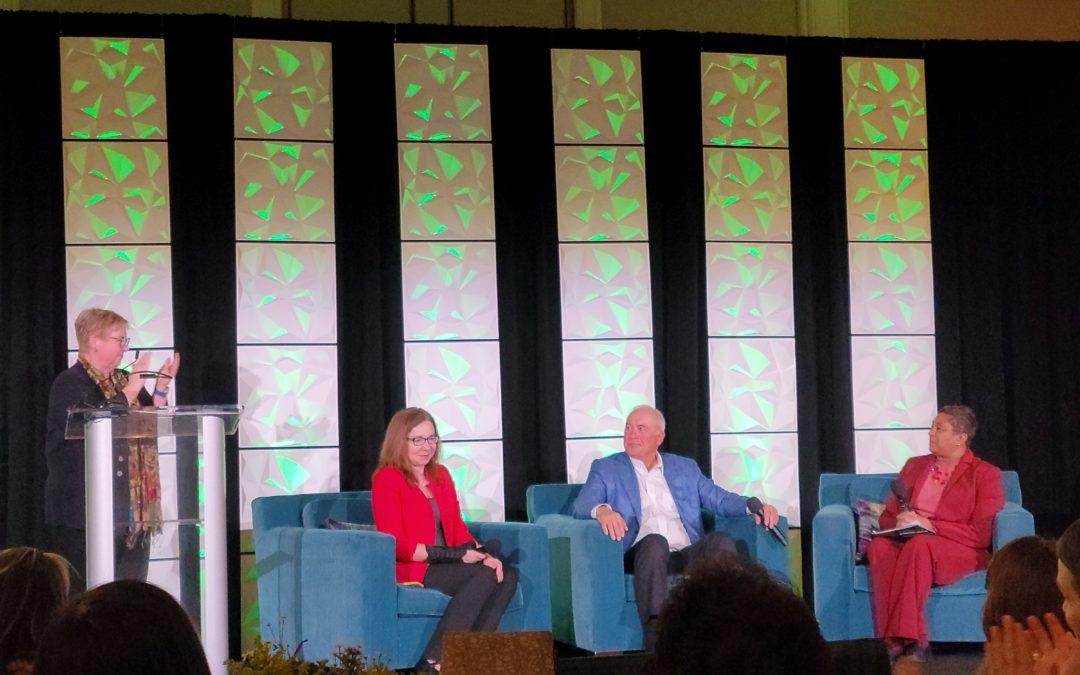DTE President and CEO Jerry Norcia joined two influential sustainability leaders for a panel discussion titled A Climate for All of Us.
Presented by Inforum, the conversation highlighted scientific research chronicling science data and the impact of climate change throughout the world and outlined how conservation and industry are working together to build a brighter future for all Michiganders.
Joining Norcia on the panel were Katharine Hayhoe, chief scientist at The Nature Conservancy, and moderator Cynthia Williams, the global director of sustainability, homologation and compliance, Ford Motor Company.
Following a presentation on the history of scientific data indicating climate change by Hayhoe, Norcia walked attendees through DTE’s strategy to lead Michigan toward a clean energy future, which is shaped by the company’s aspiration to be the best in the world and best for the world.
“When you think of your ultimate goal like the North Star and continuously work toward that target to achieve your objectives, the impossible starts to become possible,” Norcia told the audience of some 400 live and virtual attendees.
Norcia detailed how DTE’s aspiration has put the company on track to achieve significant carbon emissions reductions in DTE’s electric utility – 32% reduction by the end of this year and 50% by 2028. Norcia also presented DTE’s longer-term goals of achieving net zero/carbon neutral in its electric and gas utilities by 2050.
“DTE’s greenhouse gas reduction goals will be accomplished through the retirement of coal-fired power plants, eliminating energy waste, and our $3 billion investment in wind and solar energy,” Norcia said.
In his remarks, Norcia talked about the need for more clean energy and a resilient grid to deliver it reliably. He said it was his life’s work to ensure that all customers have access to energy that is clean and affordable.
Williams and Norcia discussed how their industries (vehicles and power generation) are the United States’ top two carbon emitters and how they are working in parallel tracks to reduce their emissions, including Ford’s participation in DTE’s voluntary renewable energy program, MIGreenPower.
The panel discussion provided an effective takeaway for participants and how to bring climate into the conversation so people can come together to avert this global crisis.
“The best way to do that is to make it relatable to the person with whom you’re speaking,” Hayhoe said. “Ask them how their family is managing during brutal heatwaves. Or if you’re cooking with someone, talk about how the climate change is impacting food and farming.”
